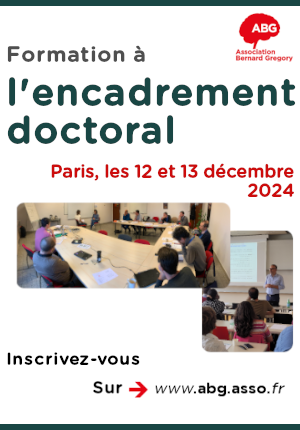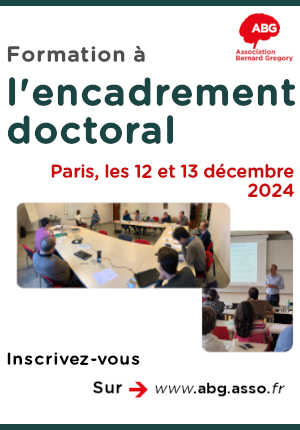Optimizing the widespread deployment of photovoltaic pumping systems to improve potable water access in Africa
| ABG-126278 | Thesis topic | |
| 2024-10-14 | Other public funding |

- Energy
- Ecology, environment
- Computer science
Topic description
Description: In Africa, over 300 million people do not have access to drinking water, primarily in remote areas, which represents a significant public health issue and a major cause of premature death. Water pumping systems powered by photovoltaic energy are a promising solution to tackle this challenge and are promoted by many development institutions. Currently, most research on photovoltaic water pumping systems (PVWPSs) focuses on the performance of systems installed locally. Few studies have examined the performance of PVWPSs across large continuous geographical areas (e.g., countries), and these remain incomplete. Nevertheless, large-scale analyses are essential to identify areas where these systems have strong potential while ensuring the sustainability of water resources.
The final goal of this PhD thesis is to propose an approach for the optimal large-scale deployment of PVWPSs. This will allow to solve this type of problem: an institution (ex : the United Nations) wants to deploy 100 PVWPSs in a region of Africa (ex : West Africa), how can it position and size these systems for maximum impact?
Specifically, the approach should aim to position and size PVWPSs in order to (a) maximize the number of people with access to drinking water while (b) keeping the system costs low, and (c) ensuring long-term environmental sustainability. The approach should be applicable across the entire African continent.
To achieve the final goal of the PhD thesis, we will notably face the following scientific challenges: (1) developing and formalizing a multi-criteria and interdisciplinary optimization problem (technical, environmental, social, economic) and (2) solving this optimization problem within a reasonable computation time, particularly by proposing a method incorporating surrogate models of progressive granularity (which requires developments in artificial intelligence).
Once the optimal deployment approach is developed, it will be integrated into a tool aimed at local stakeholders (ex: governments, non-governmental organizations, companies). This interdisciplinary project will combine aspects related to renewable energy systems, water resource sustainability, computer science as well as economic and social sciences.
For further information about the subject, please contact Dr. Simon Meunier (CentraleSupélec, Université Paris-Saclay, GeePs).
Dates: The starting date of the PhD is flexible. The PhD should begin during the year 2025.
Funding, supervision, and collaboration: The thesis is funded by the French National Research Agency (ANR). The supervisors for this thesis will be Dr. Simon Meunier (CentraleSupélec, Université Paris-Saclay, GeePs), specialized in energy systems, and Dr. Evelyne Lutton (INRAE, Mia Paris-Saclay), specialized in computer science and optimization.
The thesis will involve several international collaborations. For hydrology-related aspects, we will collaborate with Prof. Peter Kitanidis (Stanford University, USA) and Prof. Alan MacDonald and Dr. Donald J. MacAllister (British Geological Survey, UK). Regarding socio-economic aspects, we will work with Dr. Aude-Sophie Rodella (World Bank, USA).
Furthermore, numerous interactions with local developers, funders and experts are planned such as the NGOs WaterAid and Electriciens Sans Frontières, UNESCO, DargaTech company, University of Malawi, and Addis Ababa University.
Funding category
Funding further details
Presentation of host institution and host laboratory
CentraleSupélec is a founding member of Université Paris-Saclay, a research-intensive university that spans all disciplines and is consistently ranked among the world's best universities (12th globally and 1st in continental Europe in the Academic Ranking of World Universities).
Candidate's profile
The candidate should hold or be in his/her final year of postgraduate or engineering degree. The candidate should have experience in at least one of the following fields: energy engineering, environmental sciences or computer science and be motivated to develop skills in the other disciplines during the PhD. The candidate should have good oral and written communication skills in English.
Vous avez déjà un compte ?
Nouvel utilisateur ?
Get ABG’s monthly newsletters including news, job offers, grants & fellowships and a selection of relevant events…
Discover our members
 CESI
CESI  Nokia Bell Labs France
Nokia Bell Labs France  TotalEnergies
TotalEnergies  Groupe AFNOR - Association française de normalisation
Groupe AFNOR - Association française de normalisation  MabDesign
MabDesign  Ifremer
Ifremer  PhDOOC
PhDOOC  Généthon
Généthon  ANRT
ANRT  MabDesign
MabDesign  ONERA - The French Aerospace Lab
ONERA - The French Aerospace Lab  Institut Sup'biotech de Paris
Institut Sup'biotech de Paris  Aérocentre, Pôle d'excellence régional
Aérocentre, Pôle d'excellence régional  ADEME
ADEME  Institut de Radioprotection et de Sureté Nucléaire - IRSN - Siège
Institut de Radioprotection et de Sureté Nucléaire - IRSN - Siège  Tecknowmetrix
Tecknowmetrix  CASDEN
CASDEN  Laboratoire National de Métrologie et d'Essais - LNE
Laboratoire National de Métrologie et d'Essais - LNE  SUEZ
SUEZ
-
JobFixed-termRef. ABG126397University of CambridgeCambridge - United Kingdom
Postdoctoral Research Associate position in binder display platform development
BiochemistryConfirmed -
JobPermanentRef. ABG125911LVMH Gaïa- Ile-de-France - France

Ingénieur Recherche Nouvelles matières maroquinières (F/H)
Materials scienceJunior




